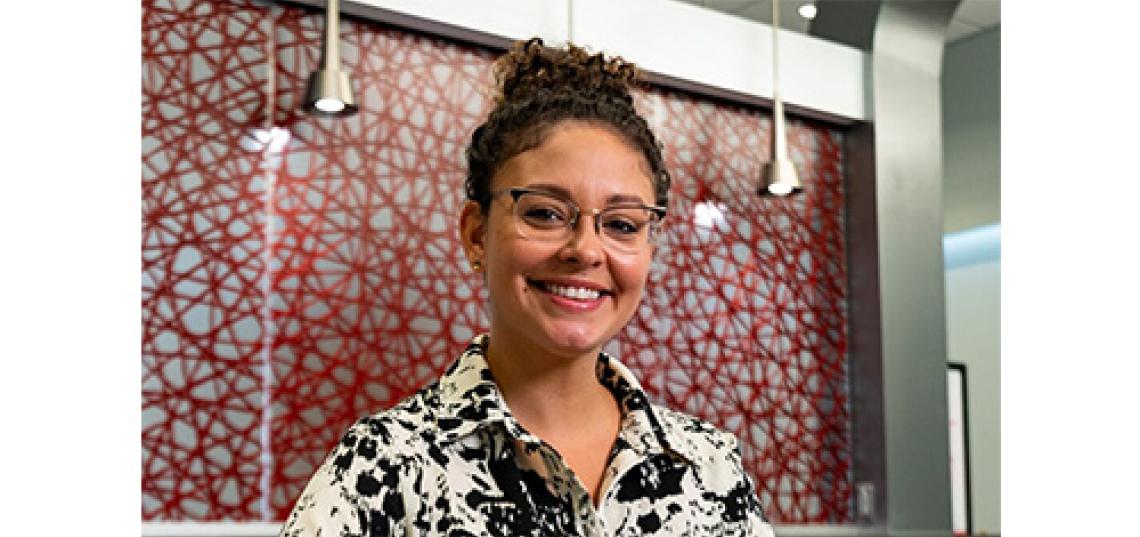
By Lori Riley, Rutgers Global Health Institute
Communication scholar Yonaira Rivera studies and teaches about the roles of culture, community, and communication in public health. A core faculty member of Rutgers Global Health Institute, she has developed original methods of qualitative research to study how individuals use social media. This work is a component of her broader research and outreach related to cancer health disparities in Latino communities, where cancer is a leading cause of death. To inform the development of culturally relevant and community-focused public health interventions, Rivera investigates how social media platforms such as Facebook and WhatsApp may influence Latinos’ thoughts, feelings, and behaviors and, ultimately, their health.
Other Rutgers roles:
- Assistant Professor, Department of Communication, School of Communication and Information
- Associate Member, Cancer Prevention and Control Program, Rutgers Cancer Institute of New Jersey
Realizing her passion for public health
During Rivera’s undergraduate years at Rutgers, she was convinced that she’d pursue a career in biotechnology research. She’d spent several summers doing lab-based research through enrichment programs for minority students, and she loved it.
But in 2005, while doing relief work in New Orleans after Hurricane Katrina, a particular experience awakened her passion for public health and community engagement. “I heard so many stories while I was there,” she says. “We were in the Lower Ninth Ward when residents were allowed to come back for the first time since having to evacuate. Part of my role was to distribute equipment to residents who wanted to clean their houses. This one sir, I was telling him about why he needed to wear a Tyvek suit when he went into his house, explaining about black mold and how to protect himself. He said to me, ‘Thank you for all this information. I wouldn’t have known this. You have such a great way of sharing information; please don’t lose that.’
“That moment for me was like, ‘This is what I want to do. However I can facilitate this, I want to educate, I want to communicate, I want to do things that make a direct impact in people’s lives.’ That’s when and how I learned about public health.”
Creating research tools to study social media
Rivera, a native of Puerto Rico, is concerned about cancer health disparities among Latino communities. Drawing from her experiences in community health education, she strives to understand the social and cultural nuances that influence how people receive, share, and interpret information about cancer and their health. Homing in on social media use among Latino populations, Rivera says she identified a “real, genuine question” that she is now helping to answer through her research.
“In public health, we want to leverage these social media platforms to communicate with our audiences. But how are people using them? On Facebook, for example, there are so many different ways that the people I want to educate may actually encounter and make sense of my content,” she says.
To help fill this knowledge gap, Rivera developed a qualitative research method that involves her sitting side-by-side with an individual as they scroll through cancer-related content within their own Facebook account. She also talks to them about what they’re seeing, who is sharing it, and why they engage with it.
“This process gives a lot of light to what works and what doesn’t, in terms of what people pay attention to or care about. It’s not just about posts they click to like or share on their own Facebook page; maybe they just read something while they were scrolling, but it made an impression on them,” Rivera says.
“I identified patterns in what they were telling me. ‘My cousin posted it,’ or ‘This organization I follow on Facebook posted it.’ That led to very rich conversations about not just the content—whether the cancer and health information was accurate—but also about the roles that trust and credibility play in whether or not they believe the info that’s being shared, and if they took any actions as a result of this information. That was really eye-opening.”
Rivera referred to “an extreme example” of one participant who said she canceled a mammogram appointment because of a Facebook post that stated, inaccurately, that mammograms cause breast cancer. “She believed the speaker was a Puerto Rican doctor,” Rivera says. “Rigorous qualitative research can reveal a lot. You can’t get that if you don’t sit down and talk to people.”
Teaching and advising students
This semester, Rivera is teaching “Health Messages and Campaign Design” in the School of Communication and Information. The undergraduate course covers the design, implementation, and evaluation of public health communication programs that aim to influence the health-related behaviors of individuals, groups, and communities.
Health communication, she says, is one of many specializations within the “incredibly interdisciplinary” realms of global and public health. “You don’t need to be a clinician to make an impact in health,” she says. “You can embed a health focus into so many different areas.”
Learn more about the Communication Department at the Rutgers School of Communication and Information on the website.
